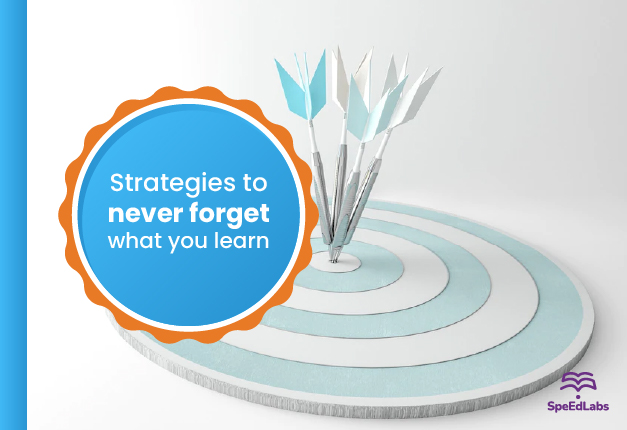As far as study techniques go, rote memorising (repeating something as many times as possible) is out.
You will not get the most important result from studying, which is comprehension if you try to memorize facts by force.
Moreover, to tell you the truth, it will be dull.
Studying should be enjoyable, with a focus on in-depth exploration and the discovery of new information. Rote memorising lacks all of this, instead of paving a path to instant recall without providing any context for the information – the how’s and whys are crucial! Therefore, we’ve compiled a list of suggestions to help you make learning more enjoyable and thus easier to master.
1: Repetition at Different Times
Reread the material several times over a short period.
Instant recall, according to 19th-century psychologist Hermann Ebbinghaus, has a 100% information retention rate. However, an hour later, only 44% of what you have read is still fresh in your mind.
Use spaced repetition to counteract this. Review your materials regularly to prevent your memory from deteriorating over time.
This entails taking notes immediately after the lecture, writing down any questions you may have, and asking your lecturer as soon as possible. Make flashcards just before exams and review them every few days instead of the last 24 hours!
2: Reiteration that is both Active and Passive
Teach the facts you are learning to someone else to cement them in your mind.
You are forced to summarize, condense, investigate, and draw conclusions because of teaching, which promotes a deeper personal understanding. This is ideal for university study, which emphasizes analysis, as opposed to pre-university studies, which are typically more fact-based.
Use the Feynman Technique, which entails explaining concepts to anyone who will listen, whether it’s a classmate, a roommate, or empty beer cans.
3: Note-Taking with a Purpose
Ask yourself what you do not understand about a topic and go for the kill. Get to the root of the problem and start digging your way out.
To begin, identify the problem areas. Second, create a question that pertains to this topic. Third, respond to your question. Use all of your lecture notes, library books, and even Google Search to find information. Do not move on until you are sure of your answer, and rest assured that by doing so, you’ll gain a better understanding of the concepts.
Do not move on until you’re sure of your answer, and rest assured that by doing so, you’ll gain a better understanding of the concepts.
4: Paper-Based Reading
Ninety-four per cent of university students polled said they prefer studying on paper because it allows them to focus more easily and allows them to highlight, annotate, and write in the margins. Reading on paper, unlike reading on a computer screen, also aids spatial memory – you can recall a specific piece of information based on where it was placed in a book.
Furthermore, paper eliminates one of the most common causes of students losing focus: distraction. There would not be an infinite number of websites tempting our eyes away from much-needed study time and breaking our focus, which is essential for memory retention if the Internet did not exist.
5: Get Enough Sleep and Exercise
Our brain absorbs information best just before bedtime or after a workout.
According to studies, people who study before sleeping or napping have better memory recall and activity in the hippocampus, the part of the brain that forms new memories. Exercise has been shown to increase the production of BDNF (Brain-Derived Neurotrophic Factor), a protein that prepares the brain for optimal learning and creative thinking. You are more likely to make creative connections between ideas, which means you’ll remember them better.
Therefore, to get the most out of your study sessions, schedule your sleep and workouts accordingly.
6: Make use of an Italian Tomato Clock
If you must cram, do so intelligently. Set aside 25-30 minutes of intense study time, and then take a five-minute break.
This method is based on the Pomodoro Technique, which uses the Italian Tomato Clock to reduce distraction and increase productivity. After all, our ability to retain information begins to deteriorate after 30 minutes. So, after half an hour, reward yourself with some healthy snacks or light stretching, which will benefit your memory far more than forcing your brain to study harder.
7: Pay Attention to Remember
Concentration requires a lot of brainpower and signals your brain to store a process or subject in your long-term memory. Your focus must be natural and your attention must be undivided. When you are tired or distracted, it is extremely difficult for your mind to commit information to memory. Set up a peaceful, distraction-free environment for learning, and you will be more likely to remember the details you have learned.
8: Reading and Listening
Listening and reading pale in comparison to other forms of learning, such as group discussions or teaching, when it comes to learning and recall. You must concentrate to learn something well, and we often struggle with the information we learn from simple hearing and seeing. Hands-on activities are required, and as humans, we learn best by making mistakes. So get as involved as possible in the process to learn as much as possible.
Also published on Medium.
